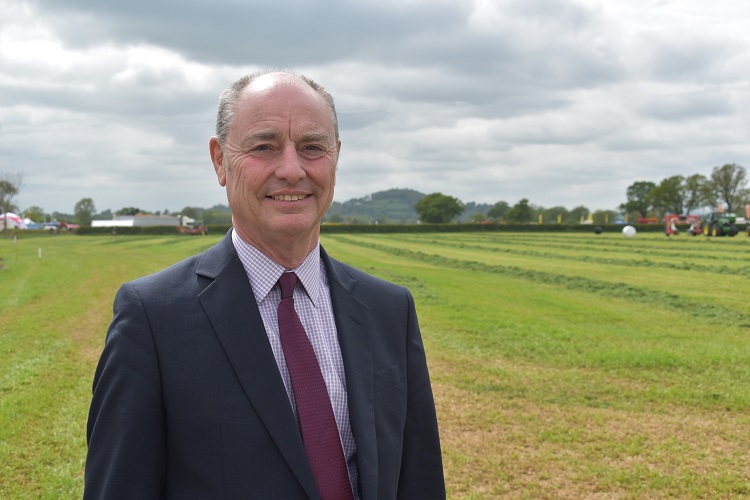Wales’s red meat industry has shown great adaptability and resilience in responding to the COVID-19 crisis this year, Hybu Cig Cymru-Meat Promotion Wales’ (HCC) Chairman Kevin Roberts said in a speech to virtual Royal Welsh Show attendees. However, he also warned that the uncertainty wasn’t over, with the potential of further disruption both from coronavirus and a trade deadlock with Europe.
Addressing the new virtual Showground, Mr Roberts said it was a very different event this year: “We have seen everything change and in the next six months we are faced with worrying challenges amid a menacing maelstrom of uncertainty.”

He said COVID-19 would remain centre stage, forcing necessary social distancing measures that would impact severely on red meat’s important foodservice sector.
“And waiting stage right is the bear of Brexit. With time ticking for the post-Brexit trade talks, lots of end-of-year outcomes remain possible, but from our industry’s standpoint, there are simply no upsides to any of these – save continued free trade with Europe.”
Mr Roberts said HCC was carefully planning for all scenarios but cautioned that a harder Brexit was looming that “would potentially bring massive tariffs on our exports and threats to our farms from trade deals with Australia, New Zealand, or America.”
He said the industry in Wales did not deserve this fate.
“In the recent months of hardship, it’s shown what it can do; quality food, produced sustainably, trusted and traceable to the farm gate.
“We’re right to be concerned about what we are eating. To consider importing food of a lesser standard, to open the door to cheaper, more intensive, less sustainable red meat from other countries, would be foolhardy,” said Mr Roberts.
He said HCC would respond to the challenges with creativity and drive, and pointed to HCC’s marketing successes in response to the lockdown closures of pubs, restaurants and foodservice outlets. “HCC instantly switched its marketing focus, innovating around new isolation initiatives to inspire people to buy roasting joints, hindquarter cuts and premium fresh meat and cook new recipes at home.”
By the end of May, he said, this work had racked up huge consumer responses and contributed to an increase of 40% on spending on beef steaks. “This wasn’t just existing customers buying more. The number of people buying beef steaks was up 30%, as we saw consumers turning to quality fresh meat. Our independent butchers saw an even bigger jump in sales. Beef up over 40%, lamb up 25%.”
HCC’s Red Meat Development Programme, funded by the EU and Welsh Government, was driving the industry forward and the successful ‘Make It Beef' campaign, one of the industry’s largest of recent years and conducted in association with counterparts AHDB and QMS, was being followed by the new ‘Make It Lamb' campaign, led by celebrity chef John Torode.
“We must all make sure that the lockdown lessons are learned – namely, how we should all treasure and value the food on our plate and properly reward the people that put it there,” said Mr Roberts.
The ‘Make It’ campaigns are being funded from the £3.5 million fund of AHDB red meat levies ring-fenced for collaborative projects, which is managed by the three GB meat levy bodies – HCC, QMS and AHDB. The ring-fenced fund is an interim arrangement while a long-term solution is sought on the issue of levies being collected at point of slaughter in England for animals which have been reared in Scotland or Wales.







